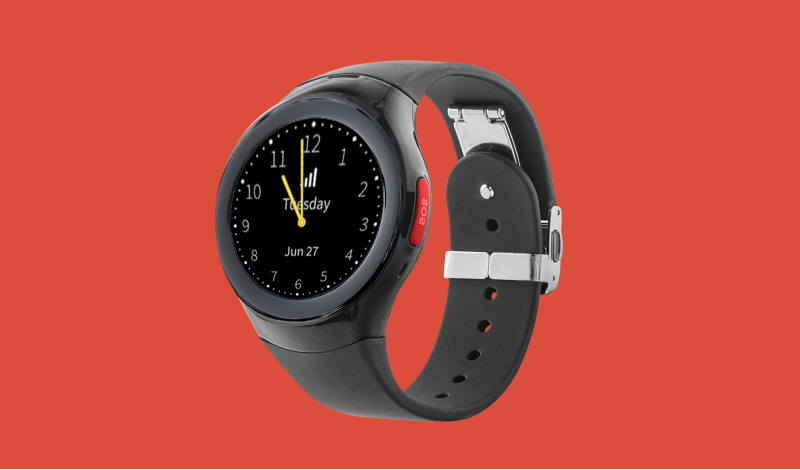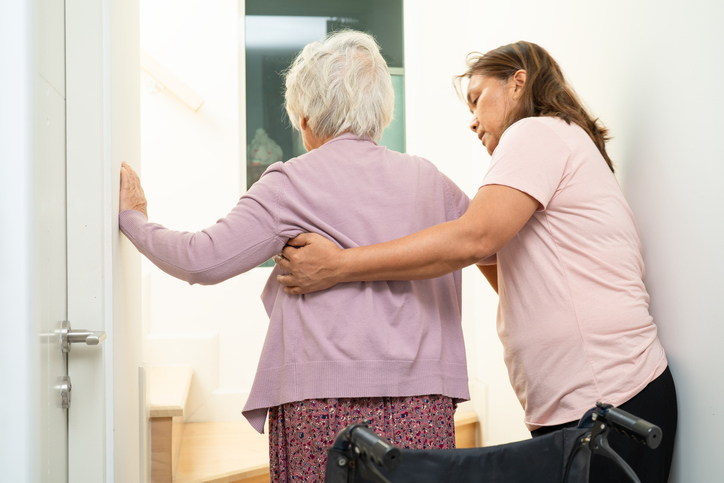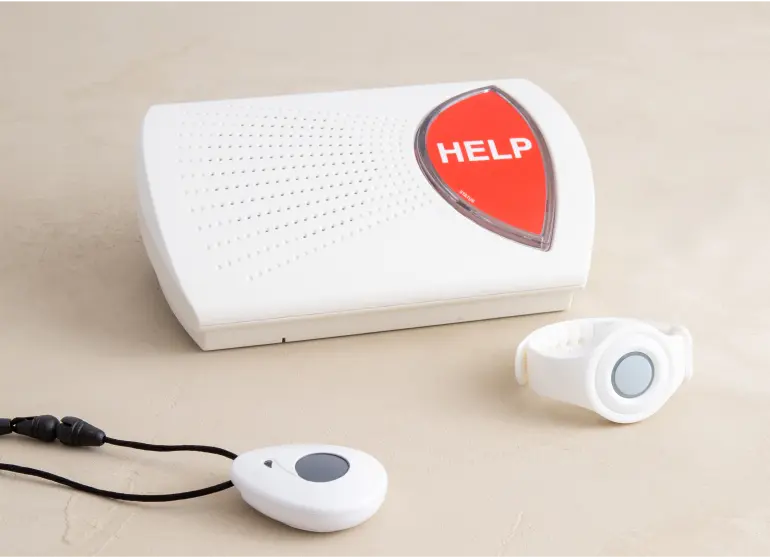
Most cell phones do a lot more than more than make calls. With a “smartphone,” you can find a restaurant online, call for a reservation, and get turn-by-turn directions. They’re great for many tasks, but they can’t keep you as safe in your home as a home medical alert system.
Here’s why…
Location, Location, Location!
When you call 911 from your home landline, the dispatcher immediately knows your address. But with a cell phone, the operator only knows which cell tower the call is originating from and will waste precious time getting your address and directions to emergency responders.
The Problem
A 911 operator doesn’t know your name or your medical history. Emergency responders need to know about your condition, drug allergies, medications, and more to treat you. The operator will try to get as much as much information as possible, but really, that’s not the best time to take someone’s medical history – assuming the patient can even answer!

When you press the button on your Bay Alarm Medical emergency medical alert watch or pendant, our operators know immediately who is calling, where you are, and have your medical history in hand. They can immediately contact emergency personnel, explain the situation, and transmit information in less time than it would take you to dial your cell phone and give your name and address to the dispatcher. And the automatic fall detection device will activate in the event your loved one is unable to push the emergency button on their own.
An Emergency During An Emergency
What if you have a personal emergency during a wider state of emergency? When Hurricane Sandy knocked out power across many states, mobile communication services were out for days in some places. That may happen with the next storm too: Bloomberg reported that cellular providers have resisted regulations to make their grids more reliable.
Cellular customers faced similar problems during the massive spring tornado outbreak in the Midwest and South in 2011. In Alabama, many cell towers were destroyed by storms, forcing Verizon to send portable towers to the state. Reuters reported that Joplin, MO faced much the same situation after a massive tornado hit the city:
More severe storms were predicted for the region, in a year that has brought tornadoes of record intensity across several states. Further complicating the rescue effort, power lines were downed, broken gas lines ignited fires, and cell phone communications were spotty due to 17 toppled phone towers.
In contrast to cell networks, landline service is often more stable and reliable. After all, landline providers have had more than 100 years to work out the kinks.
A corded landline connection works even if your power is out and our Base Station works the same way. It connects directly to your phone landline and has a 32-hour battery backup. In addition, it’s portable, so if you have to evacuate during an emergency (or travel for any reason), just contact Bay Alarm Medical and give us the phone number at your temporary location.
Furthermore, cell phones are not 100% waterproof and cannot be taken into the shower or bathtub with you (as medical alert pendants can). As noted by the CDC, the bathroom is the place where most injuries tend to take place as “an estimated 234,000 people ages 15 and older were treated in U.S. emergency departments (ED) in 2008 for injuries that occurred in bathrooms” (CDC Website, Fall Risks For Older Adults).
Ask Any Bay Alarm Medical Employee…
If we were to ever get a medical alert system for ourselves or a family member, it would always be through a traditional landline. We would never trust the cellular signal and coverage during an emergency where the lives of our loved ones may be in jeopardy. If the home doesn’t have a landline installed, we would call the phone company to get one installed before ordering the medical alert.
A cell phone is a great tool, but it can’t give you the same protection and peace of mind as a home medical alert system. In fact, a strong endorsement came from AARP on medical alerts.














